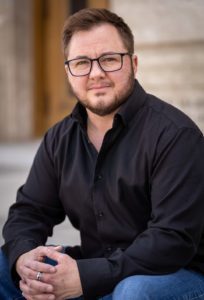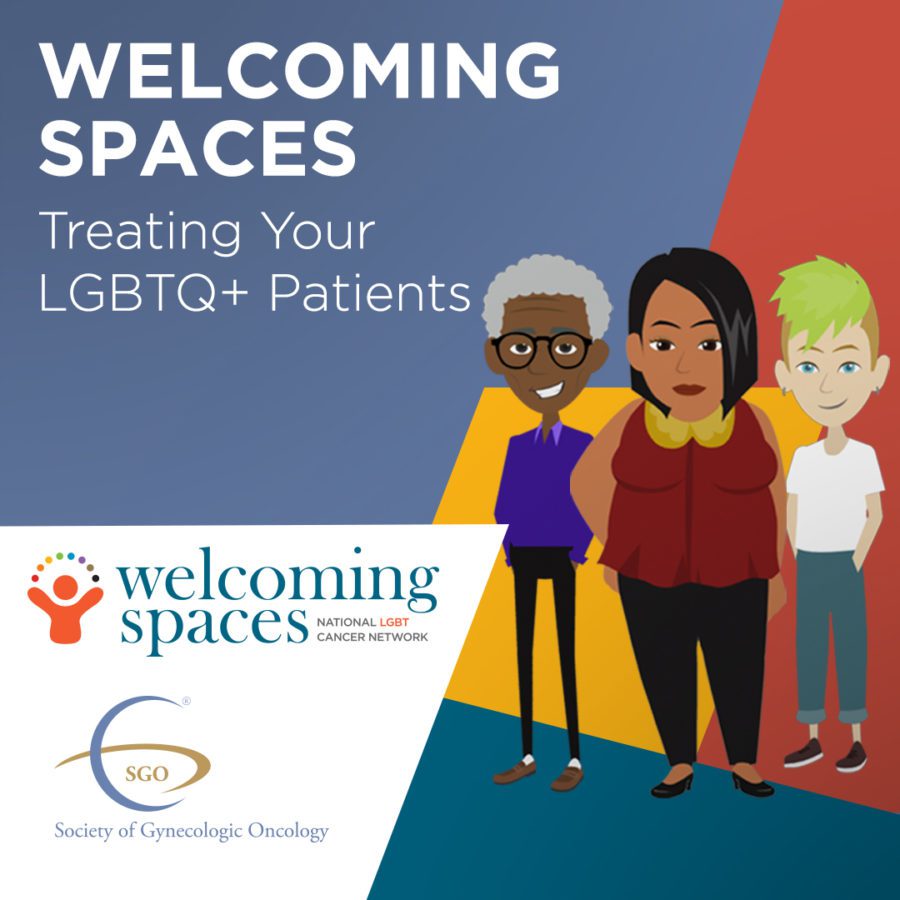When The Software Says You Don’t Exist: Creating Change as a Trans Man Navigating Ovarian Cancer | Tristan Bilash, RSW

Tristan Bilash, RSW
It was around the twenty-minute mark in the community lab chair when I finally started to become annoyed. The phlebotomist came over and apologized. They were trying to reach my family physician because he included a CA125 test on my requisition. “Usually only women need this test” they stated. I smiled, took a breath, and calmly shared “The req is correct, I had Stage IIIC Ovarian Cancer in 2004, and I’m a transgender man.”
The revelation on the phlebotomist’s face confirmed their understanding. I wasn’t angry or offended. I was grateful for the opportunity to educate – something I had become quite versed with as a clinical oncology social worker and transgender health advocate. I was also grateful to access cancer-related care with more ease than the one other transgender man with advanced ovarian cancer I knew of: Robert Eads.
I discovered Robert’s ovarian cancer story many years prior to both my social work career and gender transition. Robert was blatantly rejected by numerous healthcare providers as he desperately sought cancer treatment. By the time he found a physician willing to treat him, Robert’s ovarian cancer was widespread and his prognosis palliative. Robert died from ovarian cancer in 1999. As I left the lab, I reassured myself at least some things had improved since Robert’s story found me.
My self-assurance wore off when I later discovered my CA125 test was cancelled without notice. The byline accompanying the cancelled result was CA125 tests weren’t available for males. My physician promptly made some calls and my CA125 was completed. While a frustrating experience, I was grateful for my physician’s support, and hoped the attention brought to the matter would prevent similar experiences for other transgender ovarian cancer patients. That was back in 2020.
Fast forward to March 2022 and another CA125 test. I requested my physician include “transgender male, history of ovarian cancer” on the requisition for good measure. The night after my uneventful lab draw, I checked online for my results. My heart sank as I read “CA125 cancelled. Test not performed on male patients”. It seemed nothing had changed. The software keeps telling me neither I, nor my cancer experience, exist.
After a few moments of defeat, I regrouped and began leaving messages. Within 72 hours I heard back from a lab manager, patient advocate and medical lab director – all genuinely supportive of improving care experiences for transgender cancer patients. They confirmed the lab’s antiquated software still automatically restricts CA125 tests to females only. I was assured the restriction would be lifted promptly so CA125 tests are available for everyone. In April of 2022, at the time of writing this column, I was still waiting for confirmation of that change.
When it feels like nothing is changing, I remind myself more research and supports for transgender cancer patients exist than ever before. In addition, I’ve shared my story at national conferences, collaborated with advocates across the world and co-authored published journal articles highlighting transgender cancer patient experiences. On my wish list is a national transgender cancer support program. I’m doing everything I can to ensure other transgender cancer patients know they are not alone. I figure, all things considered, that isn’t too bad for someone who doesn’t exist.
For Robert.
Tristan Bilash is a clinical oncology social worker, advanced ovarian cancer survivor, transgender man and inclusive health advocate.
This column is sponsored by an unrestricted grant from GSK. Sponsorship excludes editorial input. Content developed by the SGO Diversity, Inclusion & Health Equity Committee.
